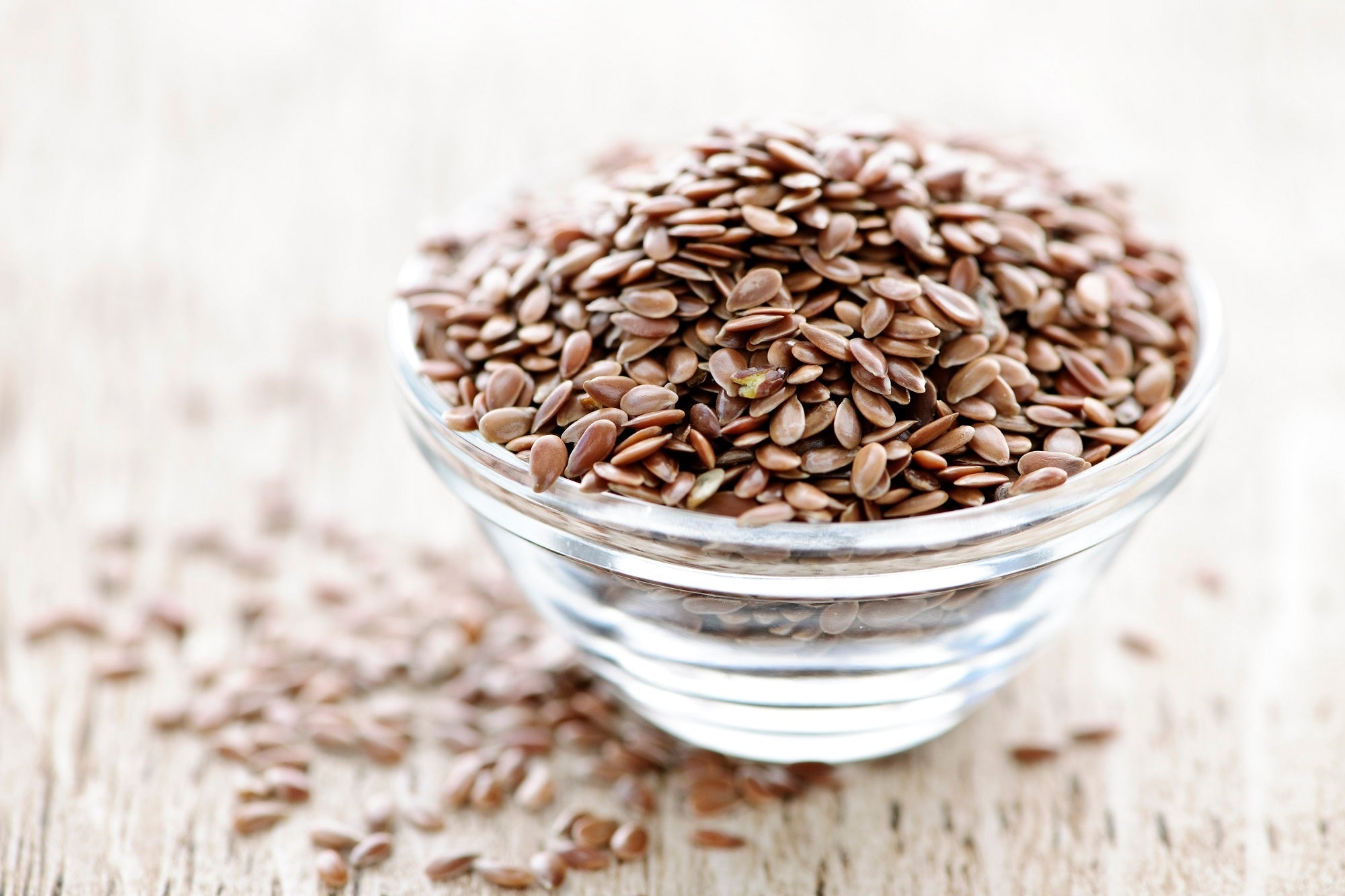
The Health Benefits of Flax Seeds
The flax plant Linum usitatissimum, also known as linseed, is both a food and fiber crop that is cultivated throughout the world. Plant fibers are used to make linen, and the oil extracted from the seeds has both culinary uses and applications for painting. It is the seeds of the flax plant, however, that provide the most benefits. Keep reading to learn about the many health benefits of flax seeds.
n
Tags:
The flax plant Linum usitatissimum, also known as linseed, is both a food and fiber crop that is cultivated throughout the world. Plant fibers are used to make linen, and the oil extracted from the seeds has both culinary uses and applications for painting. It is the seeds of the flax plant, however, that provide the most benefits. Keep reading to learn about the many health benefits of flax seeds. 

Ground vs. Whole?
When it comes to the seeds of the flax plant, there are two different varieties – brown and yellow. Both varieties have similar nutritional characteristics, with the exception of their omega-3 content. Yellow or golden seeds have a unique oil profile and they are lower in omega-3 fatty acids than the brown seeds. Both varieties produce an edible oil, though the brown seeds are more commonly used for painting, fiber, and animal feed. Flax seeds are typically sold whole or ground – the benefits of each depends on their intended use. While whole seeds are easier to keep fresh by refrigerating them, they do come at the risk of containing certain toxins. Some nutrition experts also suggest that the ground seeds are easier to digest. If you plan to use whole seeds, be sure to toast or bake them to destroy the toxins, or limit your intake of raw seeds to less than 50 grams (about 5 tablespoons).The Top 5 Health Benefits of Flax Seeds
Having been cultivated for more than 6,000 years, the health benefits of flax seeds are well proven. One tablespoon of whole seeds contains about 55 calories, 2.8 grams of fiber, 4.3 grams of fat, nearly 2 grams of protein, and just 3 grams of carbohydrates. These seeds are considered a low-glycemic food and they are rich in nutrients such as Vitamin B1, magnesium, manganese, phosphorus, selenium, iron, potassium, copper, and zinc. Here are the top 5 health benefits of these seeds:1. Lowering Cholesterol
High cholesterol is one of the biggest risk factors for heart disease. Daily consumption of flax seeds has been shown to reduce cholesterol levels by as much as 6-11 per cent. According to Authority Nutrition, it is the high fiber and lignin content of the seeds that provides these cholesterol-lowering benefits.2. Supporting Healthy Weight Loss
Rich in both healthy fat and fiber, these seeds keep your stomach feeling full so you are less likely to snack between meals. The alpha-linolenic (ALA) content may also help to reduce inflammation, boosting your body’s ability to burn fat. As a low-glycemic food, these seeds have a lesser impact on your blood sugar, which is also beneficial for people who are overweight and/or diabetic.3. Improving Skin and Hair Health
As mentioned earlier, flax seeds are rich in omega-3 fatty acids. Omega-3s are very important for heart health, but also play a role in supporting skin and hair health. The ALA content of these seeds helps your body to absorb B vitamins, which are essential for skin and hair health, while also helping to hydrate and soothe dry, flaky skin.4. Boosting Digestive Health
Perhaps the most well-known benefit of flax seeds is their ability to improve digestive health. Not only are these seeds rich in both soluble and insoluble fiber, which adds bulk to stool and helps prevent constipation and diarrhea, but the ALA content protects the lining of your digestive tract and supports healthy gut flora.5. Protecting Against Cancer
According to a study published in the Journal of Clinical Cancer Research, the lignans found in these seeds are converted by the bacteria in your digestive tract into two hormones (enterodiol and enterolactone), which can significantly reduce your risk for breast cancer. The antioxidant benefits of the lignans in these seeds may also reduce the risk for ovarian and endometrial cancer. To harness the nutritional power of these tasty little seeds, try blending them into a smoothie or sprinkle them over your morning cereal. You can also use the ground seed in your favorite recipes for baked goods or stir it into a cup of yogurt for a healthy boost of fiber.Check out our list of Nature's Path products containing flax seeds here.
Would you like to be the first to hear about our new products and more? Sign up for our Nature’s Path Newsletter.

